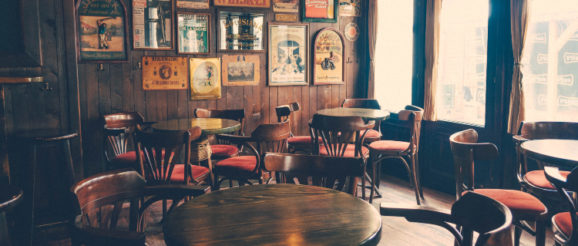Innovation will continue to come from the freehouse sector in 2020

Speaking after the launch of Christie & Co’s Business Outlook 2020: Focus on Business report – Owens stated the pub trade currently boasts unprecedented variety, with new ideas most regularly stemming from freehouses.
“I think that’s because the freehouse sector has grown so rapidly over the past 10 years – there’s room for everybody,” he explains. “We’ve seen the freehouse sector predominantly grow on the back of pubcos having to sell off large numbers of sites. Invariably, these have been bought by private individuals or small operators who were well experienced in the sector who’ve invested in those assets.
“We then see innovative, successful brands in the freehouse sector grow into smaller groups that tend to be acquired by corporate operators who then roll those brands out across their estate.”
Owens added that he expected to see innovation stem from this area of the on-trade in 2020, but that it wouldn’t be “anything revolutionary”.
“Innovation always comes from the freehouse sector,” he added. “It’s probably more evolution rather than revolution in terms of what we’ve seen – craft beers and cask ales have obviously driven the market and we have trends for gin and various other specialist products. The pub sector benefits from having a fairly broad offering in terms of the wet products but also food and accommodation. We’ve particularly seen rooms being increasingly popular because having accommodation seems a fairly stable and mature market.
“It’s more of an evolutionary process, as perhaps it always has been, but we’ve probably never seen such a wide range of concepts and operations out there, which again reflects the size and scale of the freehouse market.”
Healthy market
According to Christie & Co’s Business Outlook 2020 the UK pub sector currently finds itself in an “incredibly strong position” off the back of more than £8bn worth of portfolio transactions in 2019 – surpassing the level of activity seen over the past decade.
Owens believes that this heightened level of M&A activity has had “broadly positive” repercussions across the trade.
“If you look at the regional brewers for example – I include the likes of Fuller’s in that even though they’re not a brewer any longer – they generally don’t go in for large-scale acquisition and M&A activity,” he explains. “But equally what we’ve seen is that they’re quite inquisitive in buying individual properties and small groups and selling off some of the tail end of their estates.
“We’ve got private equity that is clearly interested in larger packages but equally we’ve got buyers out there, most notably the regional brewers, who will buy single assets or small groups. That makes for a healthy market – so the market is not just dominated by one buyer type. We have a number of buyer types who are equally interested in anything from single acquisitions up to large portfolios.”
Broadly static pub trade
What’s more, discussing the release of the Office for National Statistics’ (ONS) recent Economies of ale: changes in the UK pubs and bars sector, 2001 to 2019 report – which revealed that the number of small pubs has increased for the first time in 15 years – Owens predicted that pub numbers would remain “broadly static” in the next 12 months.
“There will be disposals and some pubs will fall out,” he said. “Equally, what we’ve also seen is some of the pub companies reigning in their new-build programmes.
“Given that, I expect a broadly static situation – which in itself is fairly positive that you’ve got a stock of pubs, which is not rapidly expanding or declining. That gives everybody certainty.”
To find out more about pubs for sale, lease and tenancy visit our property site.
